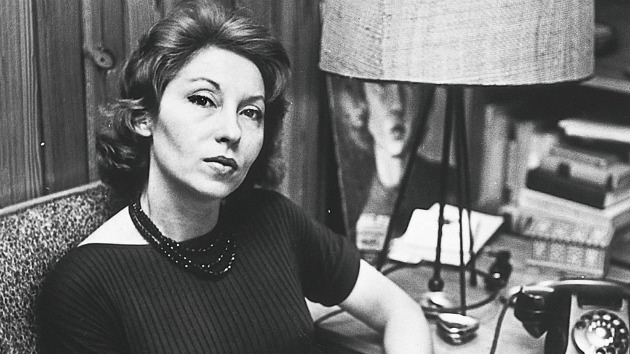
By Ladd Bauer:
“I do not want to have the terrible limitation of those who live only from what is capable of making sense. No, I want an invented truth.”(*)
Clarice Lispector
Recently someone extolled a book by the Brazilian writer, Clarice Lispector, who is unknown to most people in the United States. Looking up Clarice’s history, I became fascinated with the story of this truly unique artist, who woke very early each morning before her family arose, to write from a territory so new and yet so close that in that silence her words still ring out. I mentioned her to Jose Carlos, who said the book I chose is a masterpiece.
No quotes from the English translation appear here, because I do not want to have the beauty of the work ruined by back-translation. Suffice it to say that the eighty-eight-page Agua Viva (1) has left indelible marks after it took so long to read, one sentence and then another, pausing for meditation and reflection.
Clarice struggled each morning to be in the moment of writing and to write about it. This is impossible. Words cannot be gathered that quickly. Yet she made an amazing and moving attempt to catch moments of presence and to continually circle back to the moment after straying a little ways away. And she made clear that hers is not a book because nobody writes this way (this is almost a quote).
Why, you might well ask, do I write about Clarice for a journal of Slow Medicine? It is because her emphasis awakens something in readers, in a way very similar to how I, in my slightly cockeyed madness, see the Slow Medicine meme working.
Much of the time, discussions around Slow Medicine gravitate to matters of form. Arguments occur between advocates of alternative medicine and evidence-based modern medicine. More wrangling occurs over whether to have an organized international body or to leave it free-floating. Then, should an international body be formal, incorporated, and filled with authorities aligned with the academy, or a social gathering place? What sort of key principals will be defined and systematized? How should they be publicized, who will be on display and take credit? Where’s the money? And on it goes, tending toward the same patterns of behavior that may have gotten medicine into trouble in the first place.
If we get too caught up in this sort of thing, we may forget — if we ever saw it in the first place — a core notion that differentiates Slow Medicine from business as usual. What is it that is missing from modern medicine? What would make it better?
The ongoing flow of modern medical systems seems to work inexorably toward refining algorithms for “patient care”. If we take seriously Yuval Hariri’s (2) estimate of the potential for making medicine manageable by artificial intelligence, then fine, let’s turn everything into a checklist. Meanwhile, patients and doctors complain about computer screens and lack of personal interaction. What little time is available is taken up by checking off part of the list.
We can make this worse. Even if plenty of time is available, is anybody truly there? When I am in the same room with a patient, or even on the phone, where am I? Do I have any sense at all of the moment that we share? Is anyone here?
My confession is this: I live on both sides of the line between doctor and patient. And most of the time, nobody really is there. Doctors work as algorithms, and patients sit in imagination.
So what I propose is that we give much more attention to Presence as a foundation for healing medicine. Not as just an intellectual idea, but as a cultivated practice. If Presence is the heart of Slow Medicine, and we keep remembering to come back to this moment, to where we are, with our doctors and with our patients, then something might change.
“This is not medicine, because no one practices medicine this way.” You can quote me. Thank you, Clarice.
J Ladd Bauer MD
__________________________
Ladd Bauer is a physician, was editor of the American Journal of Alternative and Complementary Medicine, where the first English-language editorial was published with the expression Slow Medicine. He is also responsible for the website that reveals the history of Slow Medicine in the world and its main initiatives.
…………………………………
Claudia Araujo is a physician and works as a specialized translator in the medical-pharmaceutical field since 1987.
Contact: Email: [email protected] Claudia Araujo Linkedin
* The quote from Clarice Lispector at the beginning of the text was added by José Carlos Campos Velho later, believing that the fragment, taken from the book Água Viva, represented the freedom of spirit that the author proposes for Slow Medicine.
Claudia Araujo deserves public praise for her translations of my English prose into apparently more beautiful Portuguese (to go by the comment by dra. Coradazzi on the Brazilian version of this essay). My thanks go to both for, on the one hand, making the meaning clear, and on the other hand, understanding the spirit of what is written.
Thank you, Dr. Ladd. It was a pleasure translating such a beautiful text.